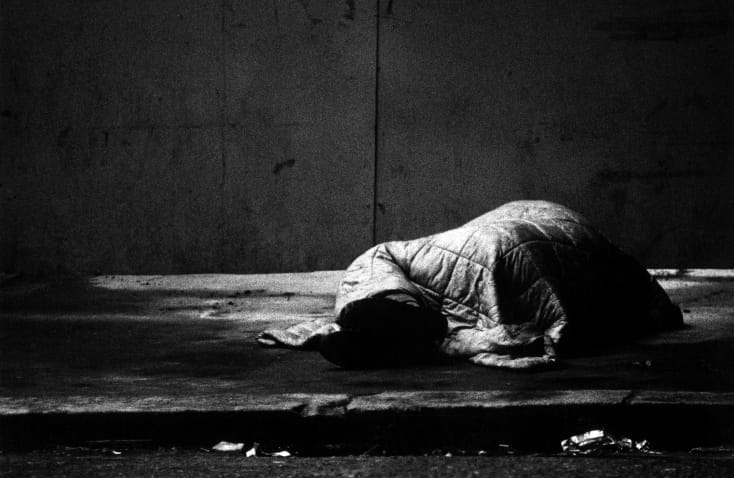Tori Lyon, W’89, has seen fiscal discipline and innovative public-private partnerships lead to amazing successes with the issue of urban homelessness.
There is no question that a difficult job market and shrinking state and city budgets have escalated the risk of homelessness for our nation’s low-income populations, including families and veterans. In New York City alone, more than 47,000 people, including some 20,000 children, have resorted to homeless shelters, the highest levels in the city’s history. And although the Veterans Administration has worked admirably to reduce veterans homelessness, there are still an estimated 2,000 veterans who are homeless in New York, a number that does not include the financially fragile veterans who “couch surf” with family or friends.
Despite the environment, the indignity of homelessness can be reduced and eventually eliminated by collaborating with the public and private sectors and engaging individual with a hope for a brighter future and concrete strategies for getting there.
While each person faces his or her own set of challenges, I have found that applying a model of supportive housing, comprehensive services and ongoing aftercare creates consistent results. About 95 percent of Jericho graduates never return to homelessness.
Here are four pillars to this approach:
Supportive Housing. A stable living condition provides the foundation for building the self-esteem and skills people need to become educated, employed and responsible parents.
Yet this can be a daunting goal for low-income people in cities where minimum wage jobs cannot cover most apartment costs. In New York, for example, half of all households are living on incomes of $28,000 or less, and almost as many are paying more than 35 percent of their incomes on rent. Unfortunately, low-income subsidies and housing vouchers that otherwise might have filled the gap have been eliminated.
Unlike a shelter system, our answer places individuals and families in residencies where they hold their own leases and pay one-third of their income for rent. Instilling confidence and dignity is fundamental to enabling a person’s long-term independence. Creating a community of wellness—with common areas, gardens, computer rooms and access to on-site support with case workers and program experts—enables residents to make the most of the supportive housing framework. Residents can stay as long as they need to, but our average stay is three years.
Workforce Opportunities.Increasing income is a key to independence, and tapping into an individual’s personal hopes and dreams can create long-lasting results. Aided by the stability of supportive housing—including a suite of services from resume building to interview preparation—residents move out of the “crisis” mode that prohibits them from taking time off to get the education or job training they need to win higher paying positions that lift them and their families out of poverty. On average, 85 percent of our residents participate in our Workforce Opportunities program.
Substance Abuse Counseling. Sobriety is crucial to keeping the building blocks of employment, education and family stability in place. Our residents’ success in battling substance abuse is exemplary: only 13 percent of Jericho residents with a substance abuse disorder experience relapses, a remarkable rate considering that the typical relapse rate averages between 40 and 60 percent, according to the National Institute on Drug Abuse.
Ongoing Aftercare. Progress is rarely a straight line. We stay in touch with our residents for at least two years after graduation, offering trusted counsel when they encounter stress, troubling past relationships or negative temptations. They come back to our residences to speak as role models or to receive awards at our annual Thanksgiving dinner.
 Amidst deep government cutbacks, all this can be accomplished through rigorous fiscal discipline, innovative public-private partnerships and a base of passionate donors. Homelessness can appear intractable. But by addressing its root causes and providing at risk people with stability and opportunity, we know that it can be overcome.
Amidst deep government cutbacks, all this can be accomplished through rigorous fiscal discipline, innovative public-private partnerships and a base of passionate donors. Homelessness can appear intractable. But by addressing its root causes and providing at risk people with stability and opportunity, we know that it can be overcome.
Tori Lyon, W’89, is executive director of the Jericho Project, a 29-year-old nonprofit with the goal of ending homelessness at its roots. Prior to becoming executive director in 2005, Lyon held the role of associate executive director since 1999. Previously, she was the grants manager at Bailey House, a supportive housing program for people living with HIV/AIDS.

























